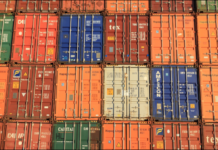Hackers are the bad eggs in the cyber world that try to make use of any opportunity to steal information or money. Characteristically, they latch onto vulnerabilities and security loopholes to exploit computer users. Currently, one of such vulnerabilities in the cyber world is the massive reliance on the internet by office employees.
The COVID-19 pandemic has led governments to declare lockdowns and encourage social distancing. As a result, workers have adapted to completing office tasks from home. Home networks and devices don’t possess the same level of cybersecurity as office networks.
Hence, cybercriminals have doubled their efforts in a bid to make more money. One of the most used tools by hackers is malware. Malware is short for ‘malicious software’ and can steal or withhold data from a victim’s device.
Malware Types used by Cybercriminals
Trojans
Trojans are malicious programs that disguise as legitimate programs. It’s the most popular form of malware used because of its deceitful nature. Computer users are more likely to download Trojans onto their systems.
They can be spread through shady websites that allow fake program pop-ups. Your system can also get infected with a Trojan through harmful email attachments.
Ransomware
This form of malicious software is used just for monetary purposes. It holds a victim’s files to ransom, preventing the user from accessing documents on the device. Ransomware hackers typically promise to release the user’s files after payment has been made.
Fortifying your Device from Malware Infections
Update all your Software
If you earlier neglected to update the software on your computer, do so immediately. Updated software prevents hackers from exploiting security loopholes in a software’s code. Outdated software is the major way hackers sneak ransomware into a system.
The software in this context encompasses your operating system, programs, and program plug-ins. Merely updating your computer programs can lessen your risk of getting hacked by over 60%.
Get a VPN for your Device
A VPN or Virtual Private Network is a security tech that encrypts the flow of information into and from your device. It is very useful in providing your network with iron-clad security.
Sometimes, you might stroll out of your home and connect to Wi-Fi in a public area. The issue is a hacker might be connected to that same network, monitoring communications and spreading malware. If you’re connected to a VPN, your device would not get infected with that malware. Attempts by the hacker to spy on your communication or activity would also be futile.
Monitor your Emails
Never open email messages from senders you don’t know. These messages can contain links to harmful websites or harmful email attachments. Once a download occurs from either of these two sources, you can get infected with malware.
Before downloading any email attachment, confirm from the sender through a call that it was him or her that sent the file. Safe email practices like this will bump your computer’s cybersecurity forward.










